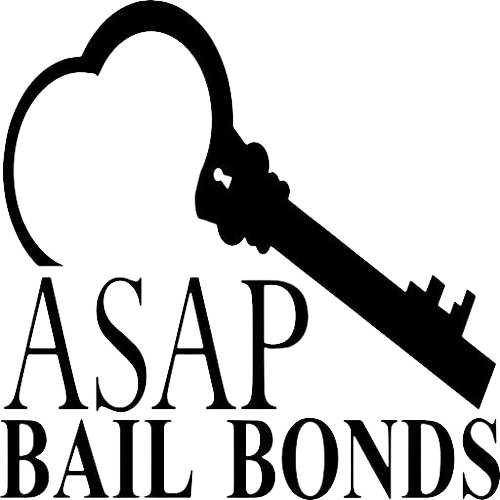When you’re facing an arrest or a loved one is in jail, one of the first questions on your mind is likely: How do I pay bail? But what happens if you can’t pay your bond? It’s a situation many people find themselves in, caught between a complex legal process and financial limitations they never anticipated.
Bail is meant to serve as a bridge between custody and court, offering a defendant freedom while ensuring they return for their trial. But when that bridge comes with a price tag you can’t afford, the consequences can feel overwhelming. In this guide, we’ll explore what happens if you can’t pay your bond, what your legal and financial options are, and how experienced agencies like ASAP Bail Bonds and other bail bonds services in Galveston County can provide the help you need.
Understanding Bail and Bond: The Basics
Before diving into what happens if you can’t pay your bond, it’s important to clarify what a bond actually is. In the legal system, bail is the amount of money set by the court to allow a defendant’s release while awaiting trial. A bond is the financial instrument that guarantees that bail will be paid if the defendant fails to appear.
You have two primary choices when it comes to paying bail:
- Cash Bail: Pay the full bail amount directly to the court.
- Surety Bond: Engage a bail bondsman who posts the bail on your behalf for a non-refundable fee. Usually 10% of the total amount.
For example, if your bail is set at $10,000, you’d need to pay the full amount in cash to secure release, or pay a bail bondsman $1,000 to handle the process for you.
But what happens if you can’t pay your bond, even with a bail bondsman’s help?
What Happens If You Can’t Pay Your Bond?
Failing to pay a bond doesn’t just delay your release. It triggers a series of legal and personal consequences. Let’s break them down:
1. You Stay in Jail
This is the most immediate and obvious result. If you can’t pay bail and don’t use a bail bondsman, you remain in custody until your court date. Depending on the complexity of your case and court backlogs, this could mean weeks, or even months, behind bars. For many, this leads to job loss, family strain, and long-term reputational damage.
2. Missed Life Obligations
Time in jail means missing work, school, rent payments, and family responsibilities. Many defendants are sole providers for their families. Staying incarcerated due to unpaid bail can lead to eviction, job termination, or even loss of custody in extreme cases.
3. Pressure to Accept Unfavorable Plea Deals
Sadly, defendants who can’t pay their bond often face pressure to plead guilty, just to get out of jail. Even if they believe they’re innocent, the prospect of waiting behind bars for months can push them to accept a deal just to go home. The long-term consequences of having a criminal record, especially for a plea made under duress can be devastating.
What Happens If a Bond Defaults?
If a bail bond is in place and payment arrangements fall through, the situation becomes more complex. Let’s say a friend or family member hires a bail bondsman and agrees to a payment plan, but then can’t follow through. What happens if a bond defaults in this case?
1. The Bail Bond is Revoked
If the bail bondsman doesn’t receive the agreed-upon payments, they may choose to revoke the bond. This means the defendant will be returned to custody, even if they haven’t violated any terms of their release.
2. Legal Action from the Bail Bondsman
Most bail agreements are contracts. If payments stop, the bail bondsman can take legal action against the co-signer or the defendant to collect the debt. This could include wage garnishment, civil lawsuits, or seizure of collateral (such as a car title or property deed).
3. Risk to the Co-Signer
If someone else signed for the bond, they’re now legally and financially responsible. Not only could they lose money, but their credit and reputation may also be affected. This is why it’s critical to fully understand the commitment before signing as a guarantor.
Options When You Can’t Pay Bail
Just because you can’t pay bail immediately doesn’t mean all hope is lost. There are several options available to defendants and families in financial distress:
1. Use a Bail Bondsman
A bail bondsman can often help when paying the full amount of bail is impossible. By charging a small percentage of the full amount, usually 10%, the bail bondsman covers the rest and secures the defendant’s release. The fee is non-refundable, but it allows for immediate freedom and time to prepare for trial.
2. Negotiate a Payment Plan
Reputable agencies like ASAP Bail Bonds understand that financial hardship is real. Many offer payment plans with flexible terms. This can include smaller down payments, deferred billing, or collateral-based agreements. It’s essential to speak openly with your bail bondsman about what you can afford.
3. Request a Bail Reduction Hearing
If the bail amount is clearly unaffordable, your attorney can request a bail reduction hearing. During this hearing, the judge may lower the bail if they determine the original amount was excessive or that the defendant poses little flight risk. Supporting documentation such as proof of employment, family ties, or lack of criminal history can support your case.
4. Consider Pretrial Release Programs
In some counties, including parts of Texas, there are pretrial services programs that allow certain non-violent offenders to be released without bail, under court supervision. These programs often include check-ins, drug testing, and electronic monitoring.
The Role of Bail Bonds Services in Galveston County
In Galveston County, as in much of Texas, bail amounts can be high, especially for felony charges. That’s where bail bonds services in Galveston County come into play. These agencies serve as the financial lifeline for families that can’t afford bail but want to keep their loved one out of jail.
A trusted local provider like ASAP Bail Bonds understands the local court systems, has relationships with court staff, and can expedite the process. They can help you:
- Navigate paperwork and legal terms
- Set up affordable payment plans
- Avoid bond defaults
- Provide 24/7 support in emergencies
Whether it’s your first arrest or you’ve been through the system before, having knowledgeable support by your side can make a world of difference.
Why Defaulting on a Bond is Risky
Let’s revisit the phrase: what happens if a bond defaults. The default of a bond agreement doesn’t just mean the defendant returns to jail. It also creates long-term damage to the credit and legal standing of everyone involved. Here’s why bond default is such a serious issue:
- Loss of trust: Courts are less likely to grant bail in the future if you’ve defaulted once.
- Loss of assets: Collateral such as homes, cars, or savings accounts can be seized.
- Increased charges: Failing to comply with bail terms can result in additional charges.
- Civil lawsuits: Bail agencies may pursue co-signers for the unpaid amount.
It’s a domino effect that can lead to further legal, financial, and emotional turmoil, especially for families who thought they were helping a loved one.
The Human Side: Why So Many Struggle to Pay Bail
It’s easy to assume that someone who can’t pay bail is trying to avoid justice. But in reality, most people who can’t pay their bond are working-class individuals who simply don’t have thousands of dollars sitting in a bank account. Bail amounts, even for non-violent offenses, can range from $1,000 to over $50,000.
Factors that make paying bail difficult:
- Living paycheck to paycheck
- Supporting multiple dependents
- No access to credit
- Language or legal barriers
- Mental health or substance use disorders
The result? Many people stay in jail simply because they’re poor, not because they’re dangerous or guilty.
This is why agencies like ASAP Bail Bonds are essential. They treat clients with dignity, offer real solutions, and help bridge the financial gap between arrest and trial.
Steps to Take If You Can’t Afford Bail Today
If you’re reading this because someone you care about is in jail and you can’t afford to post bail, here’s a simple step-by-step plan:
Step 1: Call a Bail Bondsman Immediately
Don’t wait. Reach out to a reputable agency like ASAP Bail Bonds. They can quickly assess your case and walk you through options, even if your funds are limited.
Step 2: Ask About Flexible Payment Options
Discuss payment plans, collateral alternatives, or co-signer support. Many agencies are willing to negotiate terms that work for your financial situation.
Step 3: Gather Documentation
Whether applying for a bond or requesting a bail reduction, documentation matters. Employment letters, rental agreements, and medical records can all help demonstrate stability and responsibility.
Step 4: Stay Informed
Make sure the defendant understands all court dates and bail conditions. Following these rules avoids default and keeps everyone protected.
You’re Not Alone—Help Is Available
The legal system is complicated, but one thing is clear: not everyone has the financial resources to pay bail upfront. If you’ve been wondering what happens if you can’t pay your bond, the reality is that staying in jail, losing freedom, and risking additional penalties are all possible outcomes. But they aren’t inevitable.
By working with a bail bondsman, exploring legal alternatives, and staying informed about your rights, you can overcome these financial obstacles. Agencies like ASAP Bail Bonds are dedicated to helping people get the support they need, without judgment and with compassion.
Don’t face this process alone. Whether it’s your first encounter with the justice system or you’re helping someone else through it, remember: there are always options. You have the right to prepare your defense, protect your family, and move forward with dignity, and the right bail bonds support can help you get there.

